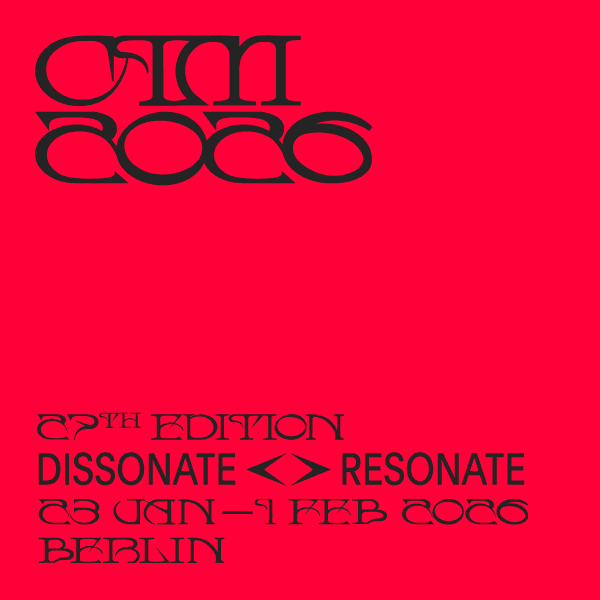Brev fra en abonnent
Dear Editor:
Iam an American composer currently at Harvard University in Boston. For many years I have also been active in the study and performance of early music, including forming, direct-ing, and singing in Clamores Antiqui, a vocal ensemble in Los Angeles specializing in pre-Baroque repertoire.
We just received the Feb. issue of DMT here at Harvard University, and I was shocked to open the cover and read that Ars Nova had called it quits. As I read the various articles (by Bo Holten and Ivan Hansen) it was even more disturbing, as it became clear that it was an unnecessary tragedy that could have - no, should have - been avoided. Although as an outsider living thousands of kilometers from the eye of the storm I do not know all the exact details or precise sequence of events, I do have some observations from an 'international' perspective that may be appropriate.
First of all, let me say that no matter who is to blame in the end, something was amiss at the very foundation of the proposed changes advocated by "gruppe 9". Regardless of what the various parties feel, the main issue is not one of pay-rates, having a conductor that travels, or how many gigs each singer could miss. Rather, there was a deep, underlying error at the heart of the proposal. Let me give an example to illustrate this point:
If someone were to suggest that the renowned vocal ensemble The Tallis Scholars become a 'democratic ensemble' and take decision-making power away from Peter Phillips, they would be laughed out of the room. The same goes for Christopher Page/Gothic Voices, Jordi Savall/Hesperion XX, Philippe Hereweghe/Chapelle Royale, Anthony Rooley/The Consort of Musicke, Andrew Parrott/The Taverner Choir, and so on ad infinitum. Many of these conductors have extensive careers as guest conductors, yet it remains clear (and absolutely necessary) that they remain the official Music Director of their respective ensembles... and not simply as a token title.
Though the aforementioned en-sembles are all primarily early music choirs, the exact same principle applies to contemporary groups (David Hykes/The Harmonic Choir and Paul Hillier/Theatre of Voices, just to name two). One would be extremely hard pressed to find a large ensemble (excluding small instrumental ensembles such as string quartets, duos and the like) that has achieved international success and continues to thrive without a central, key figure at the head. I, for one, cannot name a single such scena-rio.
Quite simply, it is somewhat of an utopian suggestion. If members of The Tallis Scholars had to vote on every gig, agree on what music they were going to perform, agree on the interpretation of that music, vote on who the members were, and had the power to elect or 'impeach' Peter Phillips and choose another Music Director (which, again, they had to agree on), they simply would not be the international success they now are. In fact, I doubt they would even exist. Maybe - just maybe - they would be a 'good' choir happily singing around London, but that's about the extent of it.
This is not civil politics we're talking about, but the reality and necessity of providing a strong artistic vision (right or wrong) and logistical control to a musical endeavor in the cold, competitive world where the 'bottom line' is king.
Not knowing the details, perhaps the singers had legitimate complaints about certain issues. However, I question whether the nature of the complaints was so severe that it necessitated the complete demise of the ensemble. Having the opportunity to sit in on approximately ten Ars Nova rehearsals and half a dozen concerts, my impression is that the rapport and atmosphere were quite friendly, interactive, and even somewhat casual.
Although Mr. Holten may have had the final word regarding interpretation, suggestions from the singers were in no way stifled or simply tolerated, but even encouraged. This is indeed a far cry from the way many professional choirs operate: anyone who thought it was bad or undemocratic with Bo wouldn't last one rehearsal with a conductor such as John Eliot Gardner.
It is tragically ironic that it is just now after 17 years of dedicated work that Ars Nova is beginning to receive increased praise and recognition outside of Europe; largely a result of the broad international distribution provided by the two Naxos CDs. I am a member of the Early Music List (an international internet group of early music scholars, performers, and fans), and I can tell you that those two discs sparked an interest and awareness of Ars Nova that didn't exist previously especially here in the United States. Although it is 'too little, too late,' I think it is clear that Ars Nova were on the verge of making a splash in the early music scene and had a bright future ahead.
Of course, the loss is perhaps even more tragic for the contemporary music world, as Ars Nova was perhaps the single best interpreter of 20th century choral repertoire in the world, bar none. I have played recordings of Ars Nova performing contemporary music for numerous conductors, composers and singers here in the States, and without exception they were simply astounded and inevitably ask, "Who are these guys and why haven't I heard them before!?"
Perhaps some believe Ars Nova and Mr. Holten should simply part ways, and Ars Nova should continue on their own. If this were possible (again, I am not aware of the legal standing regarding the name "Ars Nova"), I am certain that Ars Nova could continue to be a fantastic choir. That said, however, I find it somewhat doubtful they could attain and continue international stature. The fact is that in the international community the name Bo Holten is inextricably linked to Ars Nova. In the United States alone there are at least four other vocal ensembles named "Ars Nova" (something which has already been a problem), so the chances of success without the name 'Holten' associated with it are regrettably quite slim.
I don't want to belabor the issue. Suffice it to say that it is an unfortunate development for all involved in early and contemporary music; even more so considering the circumstances.
Lansing D. Mc Loskey Boston, Massachusetts U.S.A.

